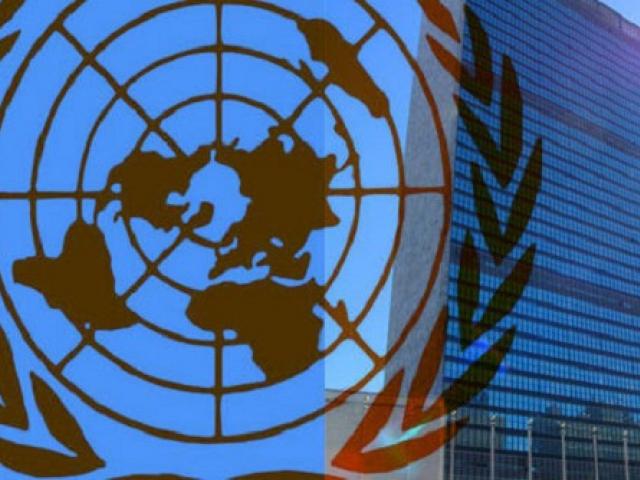
Joint Civil Society Letter to HRC Members - HRC36 - Renewal of the WGEID Mandate
News
Human Rights Organizations Urge UN Human Rights Council Member States to Reject Amendments to the Draft Resolution Renewing the Mandate of The UN Working Group on Enforced or Involuntary Disappearances ///////// Organizaciones de Derechos Humanos Instan a Los Miembros del Consejo de Derechos Humanos de la ONU a Rechazar las Enmiendas al Proyecto de Resolución que Renueva el Mandato del Grupo de Trabajo de la ONU sobre las Desapariciones Forzadas o Involuntarias
[VERSIÓN EN ESPAÑOL ABAJO]
Human Rights Organizations Urge UN Human Rights Council Member States to Reject Amendments to the Draft Resolution Renewing the Mandate of The UN Working Group On Enforced or Involuntary Disappearances
Geneva, 28 September 2017.
In the context of the renewal of the mandate of the Working Group on Enforced or Involuntary Disappearances (WGEID), during the 36th regular session of the Human Rights Council, through draft resolution A/HRC/36/L.10, the undersigned human rights organizations emphasize the essential role of the Working Group and call for the renewal of its mandate so that it can continue its important mission of prevention and protection against enforced disappearances
For us, the WGEID is a vital mechanism for the protection of people on the ground, providing victims with an efficient mechanism to speedily deal with cases of enforced disappearances, in addition to the cooperation with the homologous Committee and the wide visibility which the Working Group gives to cases of enforced disappearances, reinforcing the international commitment to prevent such atrocities.
At the present session, two amendments to the draft resolution renewing the mandate of the Working Group were submitted (A/HRC/36/L.63* and A/HRC/36/L.64**). These amendments compromise the autonomy and independence by which the Working Group discharges its duties. In addition, they interfere with the fine balance between national sovereignty and the competence of international mechanisms, already achieved during the adoption of resolution 5/1 (the “Institutional Building Package”) and Resolution 5/2 (the Code of Conduct). Transposing selectively fragments from that prior global commitment represents a serious distortion on the role and institutional functions of the WGEID. In addition, the amendments set a dangerous precedent, posing a systemic risk for all other special procedures.
Accordingly, the signatory organizations urge the members of the Human Rights Council to approve the renewal of the mandate of the WGEID, at the same time as rejecting the proposed amendments.
Yours truly,
* “Reaffirms the sovereign right of all countries to develop their own legal systems, including determining appropriate legal measures, in accordance with their international law obligations;”
** “Reiterating that special procedure mandate holders shall always seek to establish the facts, based on objective, reliable information emanating from relevant credible sources, that they have duly cross-checked to the best extent possible, and underlining the centrality of the principles of impartiality and objectivity of mandate holders,”
Letter in PDF format
https://drive.google.com/file/d/0B_hkstVsNS3hUDA1OUpyWlpWUjQ/view?usp=sharing
(Feel free to post on your website)
______________________________________________________________________________________________________
Organizaciones de Derechos Humanos Instan a los Miembros del Consejo de Derechos Humanos de la ONr a Rechazar las Enmiendas al Proyecto de Resolución que Renueva el Mandato del Grupo de Trabajo de la ONU sobre las Desapariciones Forzadas o Involuntarias
Ginebra, 28 de septiembre de 2017.
En el contexto de la renovación del mandato del Grupo de Trabajo sobre Desapariciones Forzadas o Involuntarias (Grupo de Trabajo), en la 36a sesión ordinaria del Consejo de Derechos Humanos, por medio de proyecto de resolución A/HRC/36/L.10, las organizaciones de derechos humanos abajo firmantes destacamos la imprescindible función del Grupo de Trabajo y solicitamos que la renovación de su mandato sea en el sentido de fortalecer su importante labor en la prevención y protección contra las desapariciones forzadas y no en debilitar el mandato del Grupo.
Para las organizaciones de derechos humanos, el Grupo de Trabajo constituye un mecanismo imprescindible para atender con celeridad casos de desaparición forzada, que, lamentablemente, continúan afectando a miles personas en todas las regiones del mundo. A la vez, cumple destacar la importante cooperación que lleva a cabo con el Comité contra la Desaparición Forzada que permite amplificar la capacidad de los mecanismos internacionales..
En la presente sesión, dos enmiendas al proyecto de resolución que renuevan el mandato del Grupo de Trabajo fueron presentadas (A/HRC/36/L.63* y A/HRC/36/L.64**). Las enmiendas comprometen la autonomía e independencia por las cuales el Grupo de Trabajo desempeña sus funciones al distorsionar el equilibrio entre la soberanía nacional y la competencia de los mecanismos internacionales. Cuestión ya negociada durante la adopción de la resolución 5/1 s (la “Construcción Institucional”) y la Resolución 5/2 (el “Código de Conducta”). El traspase de algunos fragmentos seleccionados de estos textos, que no dan cuenta del contenido total de los acuerdos, a la renovación del mandato del Grupo debilita el rol y las funciones institucionales de este mecanismo. Además, genera un precedente peligroso, con riesgo sistémico para los demás procedimientos especiales.
De esta manera, las organizaciones firmantes instan a los miembros del Consejo de Derechos Humanos que aproben la renovación del mandato del Grupo de Trabajo sobre Desapariciones Forzadas al mismo tiempo que rechacen las enmiendas propuestas.
Atentamente,
*En inglés: “Reaffirms the sovereign right of all countries to develop their own legal systems, including determining appropriate legal measures, in accordance with their international law obligations;”
**En inglés: “Reiterating that special procedure mandate holders shall always seek to establish the facts, based on objective, reliable information emanating from relevant credible sources, that they have duly cross-checked to the best extent possible, and underlining the centrality of the principles of impartiality and objectivity of mandate holders,”



